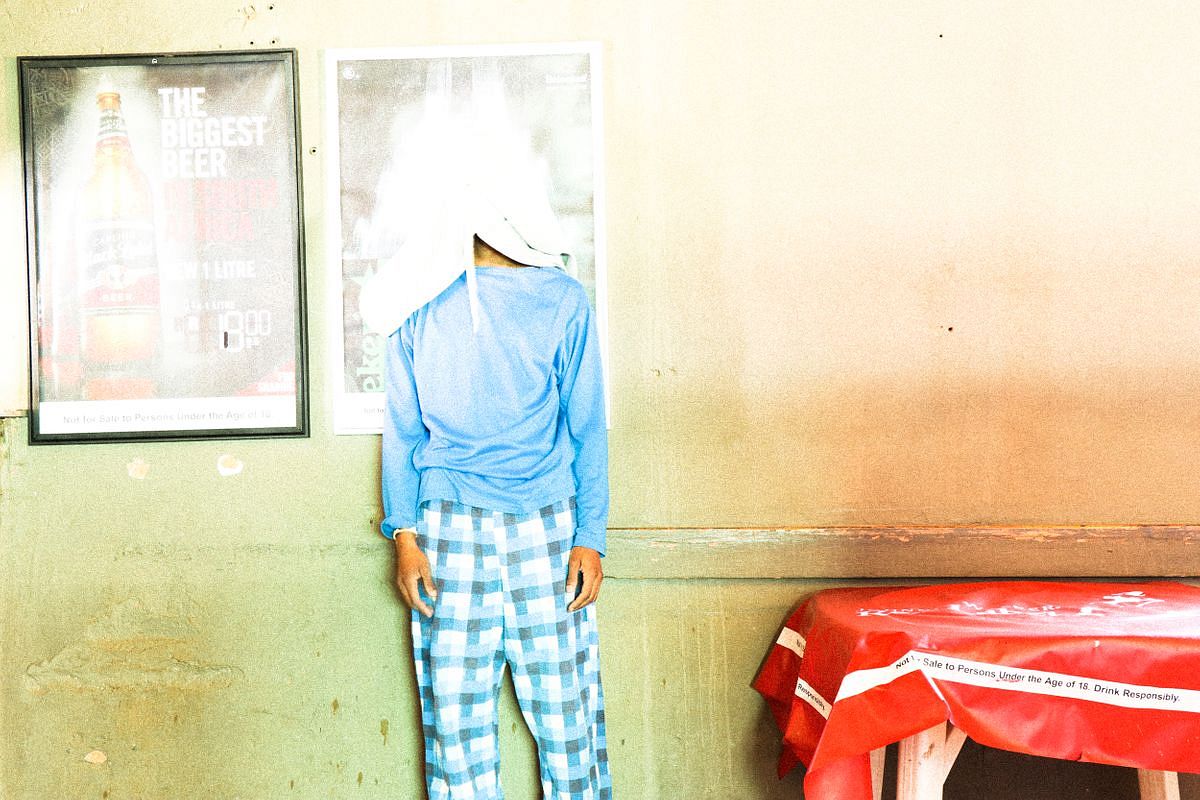Jodi Bieber, Sanne de Wilde & Bénédicte Kurzen, Thembinkosi Hlatshwayo, Abdo Shanan and Jansen van Staden have been named winners of the 2019 Contemporary African Photography (CAP) Prize

© THEMBINKOSI HLATSHWAYO, Slaghuis, 2016
The five winners of the 8th CAP Prize for Contemporary African Photography 2019 were announced at PhotoBasel international art fair in Switzerland.
The 2019 winners were selected from a list of 25 finalists.
Jodie Bieber, (South Africa), won for her portrait series titled “#i.” Born after 1994, young people and young adults from various social classes in Johannesburg who talk about their dreams, plans, hopes and ideas. Designer Brenton Maart transforms the protagonists’ statements, their own photos from their smartphones, as well as a central portrait in which the subjects place themselves in front of Bieber’s camera into tableau collages, which the photographer presented both during the 2019 elections and on the occasion of the 25th anniversary of the end of political apartheid.
Collaborators Sanne de Wilde & Bénédicte Kurzen, who live in the Netherlands and Nigeria, respectively, won for “Land of Ibeji,” a series of portraits of twins. Twins are in league with demons, herald disaster, and must be ostracized or even killed. This was once a widespread belief, and not just in Africa. Twins mean twice as much luck, twice as much fertility and twice as much love. Yet the sets of twins in ‘Land of Ibeji’ always have something fragile about them, conveying a conspiratorial closeness that also manifests in the idea that twins share one soul. All the protagonists seem to be preoccupied by an atmosphere of contemplation regarding the interplay between attachment and individuality. By seeing themselves reflected in the other, they reflect about themselves.
Thembinkosi Hlatshwayo, (South Africa), won for “Slaghuis,” a project that explores the emotional and physical effects of his experience growing up in a home attached to a tavern. Hlatshwayo uses the medium of photographic collage to roughly and rawly encapsulate the shabby and the torn, the violence and the hopelessness, in minimalist compositions. The result is a series of visual spotlights on the autobiography of an individual on the verge of extinction.
Abdo Shanan, (Algeria), won for a project titled “Dry”. The notion of Algeria as a multicultural country led the photographer to question the relationship between personal history and the present. Shanan’s black and white and colour photographs cannot be ordered into a logical chain of associations. Rather, they are erratic and thus unsettling. The subtext is provided by the photographer both in the title ‘Dry’ and in his thoughts on the inherent solitariness of the individual.
Jansen van Staden, (South Africa), won for his project titled “Microlight”. Aware that he belonged to the first South African generation not plagued by war, Jansen van Staden turned his attention to the fatal mix of tradition and trauma in his homeland. He asked himself whether hatred and war had long ago been inscribed in the genes; whether they continue to make their effect felt, or lie dormant, only to one day reemerge. The series Microlight is a self-therapy of sorts for the artist, illuminating anecdotally social parameters such as the need for closeness and communication, and the constant and unconscious infiltration of the instruments of violence into everyday life.
.
The winners’ projects will be shown “at major international photography exhibitions around the globe,” according to the CAP website. The exhibition venues are not specified.
An international panel of 19 jurors selected the finalists for the 2019 prize. Jurors included Tuula Alajoki, Akinbode Akinbiyi, Alix Koffi, Françoise Callier and Simon Bainbridge and 14 others. See the CAP website for a complete listing of jurors.
The CAP Prize is an exposure award that inaugurated in 2012, and is directed at photographers whose work engages with the African continent or its diaspora. It consists of a series of exhibitions produced in collaboration with major photography festivals in Africa and the rest of the world. The CAP Prize aims to raise the profile of African photography within the arts. Each year five winners are selected by an internationally sourced panel of judges, enabling the promotion of African photography worldwide. The CAP Prize is open to artists of any age and descent. Submitted photographic series must consist of a minimum of 10 to 25 images. The call to the CAP Prize 2020 opens on 7 November 2019.
More Editorial